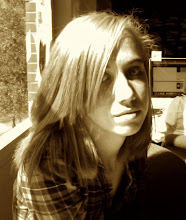With so many words to choose from, it's imperative to use the words that most clearly express the intended idea. In middle school, teachers often said not to use words like "good" or "nice" because there are other words to use that are "better." However, all of those words -- like good, fantastic, awesome, superb, terrific, wonderful -- all have slightly different meanings because they're different words.
The one word that particularly bothers me of those is "terrific" because of the way it's used today. Often, it is used in positive context, but really, the word means "very bad; frightful." It makes sense when one examines the other forms of the word -- "terror," "terrible," "terrifying," and "terribly" all connote negative images.

Communication is vital to daily life, there's no getting around it. In written forms of communication, like critical writing, it does wonders for one's credibility to be able to write cleanly, concisely, and with words that convey exactly what the author means.

I agree that there are a lot of different words that mean the same thing as others and are sometimes better/worst than others.
ReplyDeleteThis entry was interesting to me because many words are getting misconstrued/misused throughout anyone's daily routine and that mistake alone is one of the things that pretty much define Americans and how strict we are with our language.